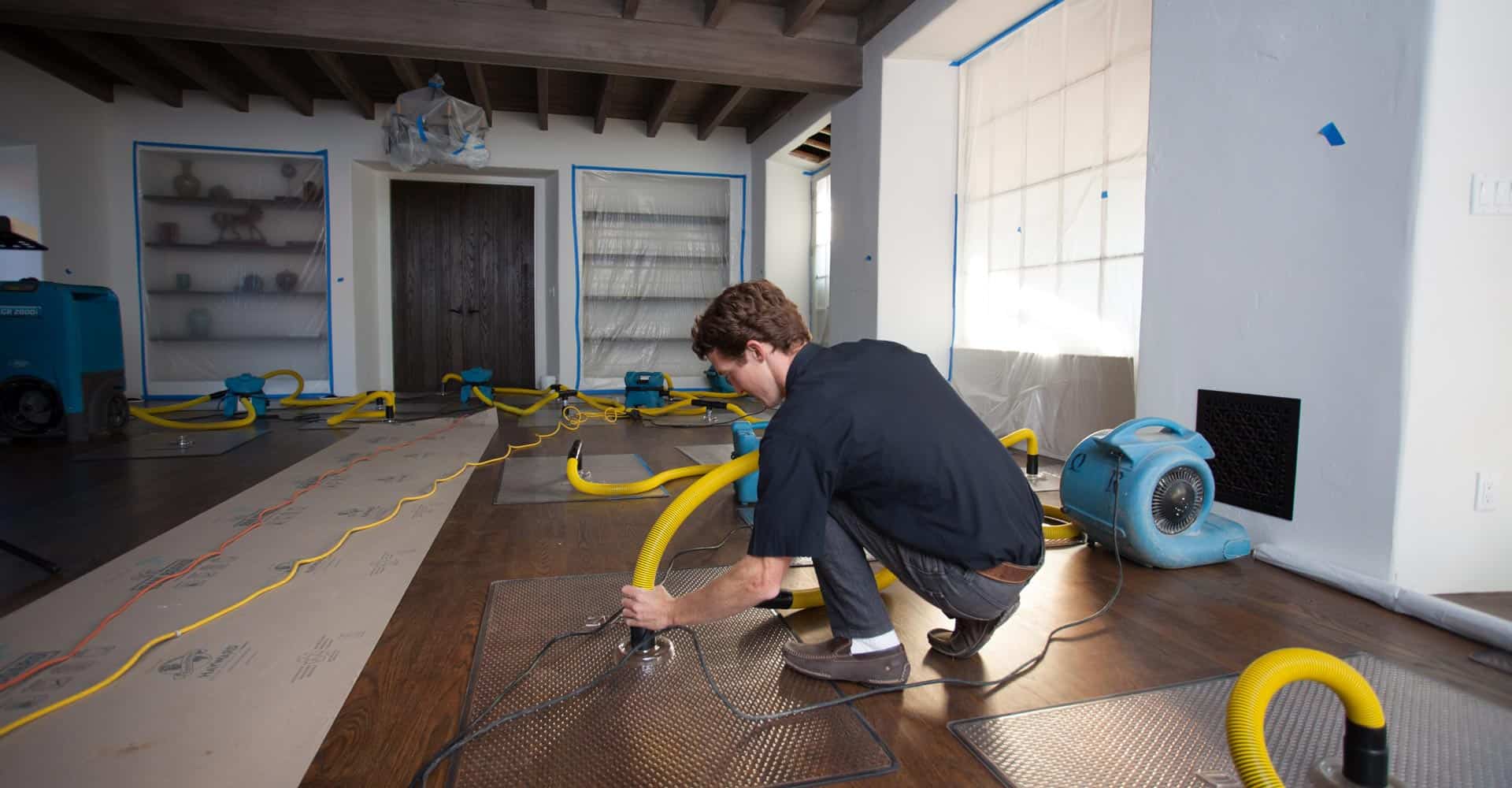
Restoring Peace: Water Damage Restoration in Grand Rapids
1. The Causes of Water Damage
Water damage is a common problem that many homeowners in Grand Rapids and surrounding areas have to deal with. Understanding the causes of water damage can help you take preventative measures to avoid potential disasters. There are several main causes of water damage, including:
1.1. Natural Disasters: When Water Strikes
One of the most devastating causes of water damage is natural disasters, such as flooding and heavy storms. Heavy rains can overwhelm drainage systems and lead to water entering homes. Flooding caused by nearby rivers or lakes can also be a major concern, especially in low-lying areas.
When water enters your home during a natural disaster, it can cause extensive damage to your property. Not only can it ruin furniture, appliances, and personal belongings, but it can also lead to structural damage if not addressed promptly.
To mitigate the risk of water damage from natural disasters, consider investing in flood insurance and implementing preventive measures, such as installing proper drainage systems and sealing basements.
1.2. Plumbing Mishaps: Avoiding Leaky Nightmares
Plumbing mishaps are another common cause of water damage. Leaky pipes, burst pipes, and faulty plumbing fixtures can result in significant water damage if not addressed promptly. These issues can occur due to aging pipes, improper installation, or wear and tear over time.
Regular maintenance and inspections of your plumbing system are crucial to catch any potential issues early on. It’s important to fix even minor leaks promptly to prevent them from worsening and causing further damage.
Additionally, being mindful of what you put down your drains can help prevent clogs that can lead to water backups and overflows.
1.3. Household Accidents: Preventing Water Troubles
Household accidents can also lead to water damage if proper precautions are not taken. Common accidents include overflowing toilets, bathtub overflows, and leaving taps running. These accidents can happen to anyone, but being cautious and practicing good habits can help minimize the risk.
Always ensure that faucets are turned off tightly and never leave water running unattended. Teach your family members about the importance of water conservation and responsible water usage.
Installing water leak detectors and shut-off valves can provide an additional layer of protection and peace of mind.
2. The Dangers of Water Damage
Water damage can have serious consequences beyond the visible signs of destruction. Understanding the dangers associated with water damage is crucial for taking immediate action and preventing long-term issues. The main dangers of water damage include:
2.1. Structural Damage: A Threat to Your Home’s Foundation
Water can weaken the structural integrity of your home, posing a threat to its foundation. When water seeps into the walls, floors, and ceilings, it can lead to rotting, warping, and mold growth. Over time, this can compromise the strength of the building and potentially lead to collapse.
To prevent structural damage, it’s important to address water damage as soon as it occurs. Proper drying and restoration techniques should be employed to ensure that all affected areas are thoroughly dried and repaired.
2.2. Mold and Mildew: The Silent Hazard
Mold and mildew thrive in moist environments, making water-damaged homes a perfect breeding ground. Exposure to mold can cause a range of health issues, including respiratory problems, allergies, and skin irritation. Certain types of mold, such as black mold, can be particularly hazardous to your health.
If you suspect mold growth in your home, it’s crucial to address it immediately. Professional restoration services can assess the extent of the mold problem and safely remove it, ensuring a healthy living environment.
2.3. Health Risks: Protecting Your Loved Ones
Water damage can pose significant health risks to you and your family members. Standing water and excessive moisture can create a breeding ground for bacteria and other pathogens. In addition to mold-related health issues, prolonged exposure to water-damaged areas can lead to respiratory infections, skin infections, and other illnesses.
It’s essential to prioritize your health and safety by promptly addressing water damage issues. Professional water damage restoration services have the expertise and equipment to properly clean and sanitize affected areas, reducing the risk of health complications.
3. The Process of Water Damage Restoration
When faced with water damage, it’s important to understand the process of water damage restoration. Swift action is crucial to mitigate further damage and restore your property to its pre-damaged state. The process typically includes the following steps:
3.1. Assessment and Damage Evaluation: Uncovering the Extent of the Problem
The first step in water damage restoration is conducting a thorough assessment of the affected areas. This involves identifying the source of the water damage, evaluating the extent of the damage, and documenting the findings.
A professional restoration team will use specialized equipment to detect hidden moisture and assess the structural integrity of the property. This assessment is crucial for developing an effective restoration plan.
3.2. Water Extraction and Drying: Swiftly Removing Moisture
Once the assessment is complete, the next step is to remove any standing water and begin the drying process. Industrial-grade pumps and vacuums are used to extract water from the affected areas. High-powered fans and dehumidifiers are then employed to dry out the space.
Thorough drying is essential to prevent mold growth and further damage to the property. The restoration team will monitor moisture levels and adjust the equipment as needed to ensure complete drying.
3.3. Cleaning and Sanitization: Restoring a Healthy Environment
After the water extraction and drying process, the restoration team will clean and sanitize the affected areas. This involves removing any remaining debris, disinfecting surfaces, and treating for mold and mildew.
Specialized cleaning products and techniques are used to ensure a thorough and safe restoration. The team will also address any odor issues caused by the water damage, leaving your home fresh and clean.
4. Hiring Professional Water Damage Restoration Services
Water damage restoration is a complex process that requires expertise and specialized equipment. Hiring professional water damage restoration services offers numerous benefits and ensures a thorough restoration. Here are some reasons why hiring experts is the best course of action:
4.1. The Benefits of Damage Restoration Experts
Professional restoration experts have the knowledge and experience to handle water damage restoration effectively. They understand the intricacies of the process and are equipped with advanced tools and equipment to expedite the restoration process.
By hiring professionals, you can rest assured that the restoration will be thorough and efficient, minimizing the risk of further damage or future issues related to the water damage.
4.2. Tips for Choosing the Right Restoration Company
When selecting a water damage restoration Grand Rapids, it’s important to do your research and choose a reputable and reliable service provider. Consider the following tips when making your decision:
- Check for certifications and accreditations, such as IICRC certification, which ensures that the company follows industry best practices.
- Read reviews and testimonials from previous customers to gauge the company’s reputation and customer satisfaction.
- Inquire about the company’s response time and availability for emergency situations. Water damage requires immediate attention, so it’s essential to choose a company that can respond promptly.
4.3. Price vs. Quality: Finding a Balance
When it comes to water damage restoration, it’s important to strike a balance between price and quality. While it may be tempting to choose the cheapest option, it’s crucial to prioritize the quality of the restoration work.
Remember that water damage restoration is an investment in your property’s future. Hiring a reputable company that offers competitive pricing and high-quality workmanship will ensure long-term satisfaction and the prevention of future issues.
By understanding the causes and dangers of water damage, familiarizing yourself with the restoration process, and hiring professional services, you can restore peace to your home and minimize the impact of water damage in Grand Rapids.
FAQ
Question: Can water damage be prevented? – Yes, understanding the causes of water damage and taking preventative measures can help avoid potential disasters. Installing proper drainage systems, sealing basements, and regular plumbing maintenance are some preventive measures to consider.
Question: What are the main causes of water damage? – The main causes of water damage include natural disasters (flooding and heavy storms), plumbing mishaps (leaky pipes and burst pipes), and household accidents (overflowing toilets and leaving taps running).
Question: What are the dangers of water damage? – Water damage can lead to structural damage, mold and mildew growth, and health risks. Structural damage can compromise the integrity of the building, mold and mildew can cause health issues, and standing water can create a breeding ground for bacteria and pathogens.
Question: What is the process of water damage restoration? – The process of water damage restoration involves assessment, water extraction and drying, and cleaning and sanitization. Professional restoration services assess the damage, remove standing water, dry the space, clean and sanitize the affected areas.
Question: Why should I hire professional water damage restoration services? – Hiring professionals ensures thorough and efficient restoration. They have the knowledge, experience, and specialized equipment to handle the restoration process effectively, minimizing the risk of further damage or future issues related to the water damage.
Question: How can I choose the right restoration company? – When choosing a restoration company, consider certifications and accreditations, read reviews and testimonials, and inquire about their response time and availability for emergency situations.
Question: Should I prioritize price or quality when choosing a restoration company? – It’s important to strike a balance between price and quality. While it may be tempting to choose the cheapest option, prioritize the quality of the restoration work to ensure long-term satisfaction and the prevention of future issues.
Question: Is water damage restoration an investment? – Yes, water damage restoration is an investment in your property’s future. By addressing water damage promptly and hiring reputable restoration services, you can prevent further damage and ensure the well-being of your home.
Useful Resources:
- Federal Emergency Management Agency (FEMA) – FEMA provides resources and information on disaster preparedness and response, including water damage prevention and recovery.
- Environmental Protection Agency (EPA) – The EPA offers guidance on water damage restoration and mold remediation, ensuring safety and environmental regulations are followed.
- Institute of Inspection, Cleaning and Restoration Certification (IICRC) – The IICRC is a respected authority in the restoration industry, offering certifications, training, and standards for water damage restoration professionals.
- Centers for Disease Control and Prevention (CDC) – The CDC provides information on the health risks associated with water damage and mold exposure, as well as guidance on prevention and remediation.
- Consumer Reports – Consumer Reports offers unbiased reviews and ratings on various water damage restoration services, helping you make an informed decision when choosing a restoration company.
- This Old House – This Old House provides DIY guides and tips on water damage prevention, repair, and restoration for homeowners looking to tackle smaller-scale water damage issues.
- National Flood Insurance Program (NFIP) – NFIP provides information and resources on flood insurance, helping homeowners protect their property from potential flood-related water damage.
- HomeAdvisor – HomeAdvisor offers a comprehensive directory of professional water damage restoration services, allowing you to find and compare local providers based on reviews, ratings, and credentials.




